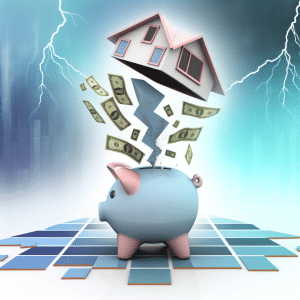As President Trump contemplates eliminating capital gains taxes on home sales to stimulate the housing market, savvy investors and homeowners should recognize that opportunities to reduce their tax burden already exist—without waiting on legislative shifts. Here’s the inside scoop from Extreme Investor Network on how to navigate capital gains taxes on home sales and what this means for your investment strategy moving forward.
Capital Gains Taxes on Home Sales: Who’s Really Impacted?
Under current tax law, if you sell your primary residence, you can exclude up to $250,000 of profit from capital gains tax if you’re single, or up to $500,000 if married filing jointly. Beyond these thresholds, capital gains tax rates of 0%, 15%, or 20% apply depending on your income bracket, with an additional 3.8% net investment income tax for higher earners.
But here’s a critical insight: despite soaring home prices, the majority of sellers don’t actually surpass these exclusion limits. According to a 2025 National Association of Realtors (NAR) study, only about 34% of single filers and 10% of married couples exceed these thresholds. Typically, it’s long-term homeowners—often older—who face this tax bite because their property has appreciated significantly over many years.
Why This Matters for Investors and Advisors
For investors, especially those in high-value markets, this potential tax hit can materially affect your net returns from home sales or investment properties converted to primary residences. Advisors should caution clients to plan their sales strategically and consider tax implications as part of their broader wealth management approach.
The Hidden Lever: Increasing Your Home’s Cost Basis
Here’s a powerful strategy many overlook: increasing your home’s “cost basis” to effectively reduce taxable gains. Your cost basis is essentially what you paid for the home, adjusted for certain factors. By adding the value of capital improvements—think substantial renovations like room additions, new roofing, landscaping upgrades, or installing modern HVAC systems—you can raise your cost basis.
The IRS explicitly excludes routine repairs and maintenance (like painting, fixing leaks, or replacing broken fixtures) from this calculation, but don’t underestimate the impact of documented capital improvements. For example, a recent case study from a Boston-area homeowner who added a $75,000 kitchen remodel and a $40,000 new roof saw her taxable gain shrink by $115,000, saving tens of thousands in taxes.
Actionable Advice: What Should You Do Now?
-
Audit Your Records: Start by compiling detailed documentation of all capital improvements made during your ownership. Receipts, contracts, and before-and-after photos can be invaluable if you’re audited.
-
Plan Your Sale Timing: Consider market conditions and your taxable income bracket. Selling in a year when your income is lower could reduce your capital gains tax rate.
-
Leverage Tax Professionals: Work with tax advisors who understand real estate nuances. An enrolled agent or CPA specializing in property can help maximize your cost basis and navigate complex tax rules.
-
Watch Legislative Developments: While no changes are guaranteed, stay informed about potential reforms. If capital gains taxes on home sales are eliminated or reduced, it could reshape real estate investment strategies nationwide.
What’s Next for the Housing Market and Investors?
If the Trump administration moves forward with eliminating capital gains taxes on home sales, it could trigger a surge in market activity, especially among older homeowners who have been hesitant to sell. This might increase housing supply, potentially tempering price growth in overheated markets.
However, from an investor’s perspective, the current environment still demands savvy tax planning. According to the Tax Foundation’s chief economist William McBride, the tax code currently favors long-term homeowners, but high appreciation markets create pockets of exposure that require proactive strategies.
Final Thought: Don’t Wait for Washington to Act
The takeaway? Don’t sit on your hands hoping for tax reform. Use existing IRS rules to your advantage now. Increasing your home’s cost basis through documented capital improvements is a proven, IRS-sanctioned way to reduce your tax bill. Combine this with smart timing and professional guidance, and you can keep more of your hard-earned gains.
For investors and advisors looking to sharpen their competitive edge, this nuanced tax planning is a must. The housing market is dynamic, and so should be your approach to capital gains taxes. Stay ahead with Extreme Investor Network as we continue to break down the financial moves that matter most.
Sources:
- National Association of Realtors (2025 Study)
- Tax Foundation, William McBride, Chief Economist
- IRS Publication 523: Selling Your Home
By integrating these insights, you’ll be positioned not just to navigate, but to thrive in the evolving landscape of home sales and capital gains taxation.
Source: How to lower capital gains on home sales as Trump eyes ending the tax

